Young Pakistani students, Appalachian State University students and Watauga County public school students spent some time together recently and found they were more similar than dissimilar despite living worlds apart.
The time together was part of a recent educational exchange designed to bridge the gap between the U.S. and Pakistani cultures. This is the second year of the exchange program between Appalachian State University, Watauga County Public Schools and the Heavy Industries Taxila Educational City (HITEC) Cambridge School, Junior High School for Boys and the College for Girls in Taxila, Pakistan. The program is funded by the Public Affairs Section of the U.S. Embassy in Islamabad, Pakistan.
A total of eight teachers and 16 students (eight girls and eight boys) visited Watauga County in late October.
The middle- and high-school age girls participated in a series of sessions devoted to discussing their views on expectations of teen girls, education, health-care access for girls, self-image and social challenges, among other topics.
Dr. Elaine J. O'Quinn, a professor in Appalachian's Department of English and advocate for the girls' studies minor in the Department of Cultural, Gender, and Global Studies, facilitated the sessions. She was assisted by Dr. Linda McCalister, director of the Reich College of Education's Public School Partnership, who visited Pakistan last year and spoke with the Taj Igbal, chairman of HITEC, and learned of his interest in bringing girls to the U.S. from the warring Federally Administered Tribal Areas and Balochistan regions of Pakistan where they have fewer opportunities for education and personal growth. Six girls from these regions participated in this year's exchange.
On education
The young women all learned that they had similar goals—to get a good education and have a successful career—but cultural expectations impacted how all the girls saw the possibilities of their futures.
"The Pakistani girls were concerned about their education in a very different way, but clearly that was because, as they noted, even if they got an education, they were not, for the most part, allowed to work and use it," O'Quinn said. "I think that accounts for why so many of them want to be doctors, a field where they will be needed, despite their marital status."
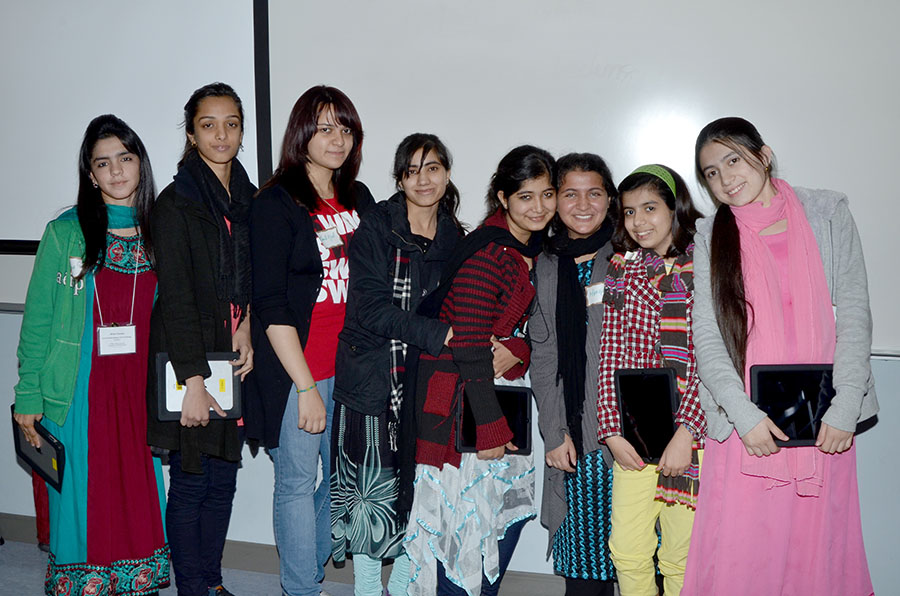
Eight students from the Heavy Industries Taxila Educational City schools in Pakistan recently visited Appalachian State University as part of a U.S. Embassy-funded exchange project. Six of the young women were from the warring Federally Administered Tribal Areas and Balochistan regions of Pakistan. The educational exchange designed to bridge the gap between the U.S. and Pakistani cultures. Photo by Jane Nicholson
On marriage and family
Getting married and raising a family has different meanings for the Pakistani, Appalachian and Watauga County students. "None of the American girls talked about getting married yet, but several of the Pakistani girls did," O'Quinn said. "We were all surprised that the Pakistani girls brought up arranged marriages on their own, indicating that it is very much on their mind. They also wanted to talk some about the younger age at which their culture expects them to marry."
Family relationships and obligations were especially important for the Pakistani students—such as being good family members and good daughters.
On body image
While the American students were more concerned with body weight and body image than the Pakistani students, all of the girls were concerned with being attractive enough. For the Pakistani girls, they reported that "beauty" relates to their marriage prospects, O'Quinn said.
On technology
Relationships established during last year's exchange as well as opportunities for participants to interact via Skype and Facebook before coming to Boone helped the participants bridge cultural barriers and develop friendships, according to McCalister. As part of the girls' work together, they were all issued iPads and then taught how to make a public service announcement about girls' and their contributions to community, leadership roles, education and their fight against discrimination against girls globally.
On cultural understanding
McCalister noted that, "personal relationships and an understanding of the two countries and their people are evolving" and that she is pleased with the progress. "We hope the cultural discussions, sharing of stories, photos and each other's history will help us move toward our goal on working on joint education projects," she said.
"When the first group of students and teachers came here, they were very wary of us and not sure what Americans were going to be like," she added. "The Pakistani visitors' prior introduction to America had been through media images which stereotyped all Americans in business suits with unsmiling faces and not personable.
"When they arrived here, they found families that were just like their families and smiling faces. By the end of the first exchange, we had people who might have been conflicted in terms of their feelings about Americans who left saying they learned a lot about the U.S. and its people," McCalister said.
Upon returning to their country, the Pakistanis in turn shared their experiences with their fellow teachers, students, classmates and families, which helped ease any anxieties this year's participants might have had about traveling to the U.S., and made this year's interactions more open.
As one of the Pakistani girls who participated in this year's girls' sessions noted, "I learned that Americans are similar to Pakistanis and Americans are lovely and beautiful. They are hospitable, honest and loving, and very respectful of Pakistanis."
On heroes
"One surprise we experienced was in our discussion about girls as heroes," O'Quinn said. "I don't think anyone expected a Pakistani girl to point out that many people in Pakistan strongly dislike Malala Yousafzai." Yousafzai gained international attention after being shot by militants for promoting education for girls.
"While some of the girls did not believe Malala was attacked as reported, they did like her stance on education," O'Quinn said. "Like the arranged marriages conversation, the American girls listened to the Pakistani girls' views out of respect for their own cultural difference without an insistence on an American perspective. I think that was an important learning experience for the American girls in understanding that we cannot, as women's studies graduate student Lyndsay Rae Newman said, 'homogenize' the female experience if we are to move forward across cultures."
O'Quinn also commented on the strength both groups believe they gain from interactions with other females, such as teachers and friends.
What the future holds
The Pakistani girls shared with organizers of the girls' sessions their thoughts regarding the value of the experience. One wrote, "I learned that all girls have issues that are more or less the same, no matter what society or country they come from. I also learned that there are people who understand the problems and obstacles I'm facing, and that I don't have to be afraid to be myself or have an opinion that might not be conventional or typical to other people."
Another Pakistani girl wrote, "These sessions were a huge boost to my self-esteem and have encouraged me to keep trying to break the stereotypes that people have about girls, especially in my society."
O'Quinn also commented on the empowerment the sessions provided. "I thought that all of the girls really were surprised by a renewed understanding of how strong they are in a world that pummels them in ways they had not really articulated to each other before. The Pakistani girls especially understood the strength they could gain from female teachers that they saw as role models," she said.
"I also know, from their comments, that all of the girls saw strength in each other, despite their differing cultures. They felt this experience would make them stronger going forward because they recognized they had a voice that needed to be heard in the world, and that they could impact the future starting now."
15 Pakistanis strengthen their teaching skills and leave behind a better understanding of their culture
About Appalachian State University
As a premier public institution, Appalachian State University prepares students to lead purposeful lives. App State is one of 17 campuses in the University of North Carolina System, with a national reputation for innovative teaching and opening access to a high-quality, cost-effective education. The university enrolls more than 21,000 students, has a low student-to-faculty ratio and offers more than 150 undergraduate and 80 graduate majors at its Boone and Hickory campuses and through App State Online. Learn more at https://www.appstate.edu.
What do you think?
Share your feedback on this story.

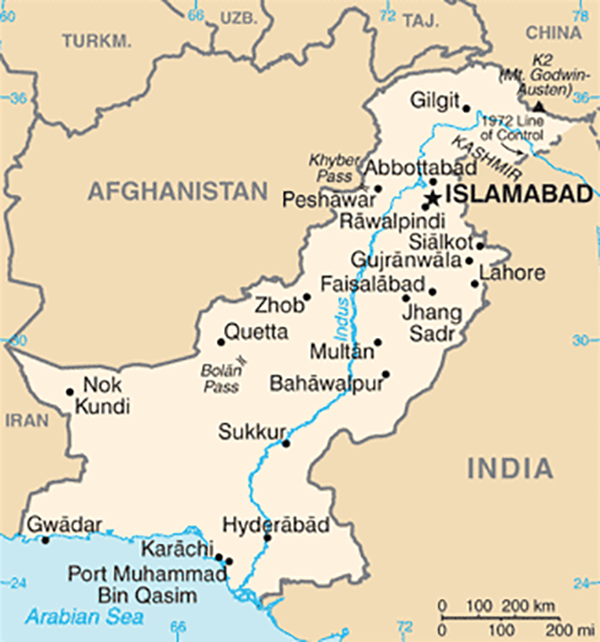
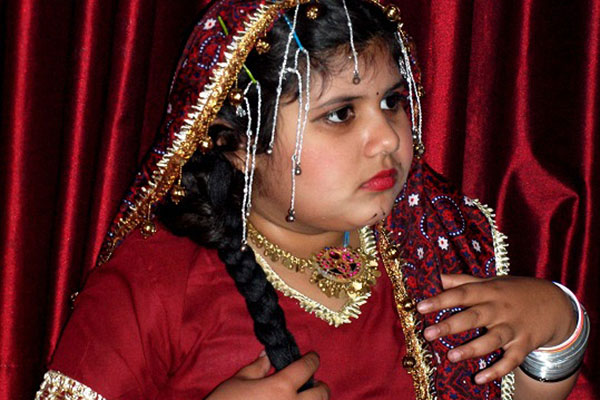
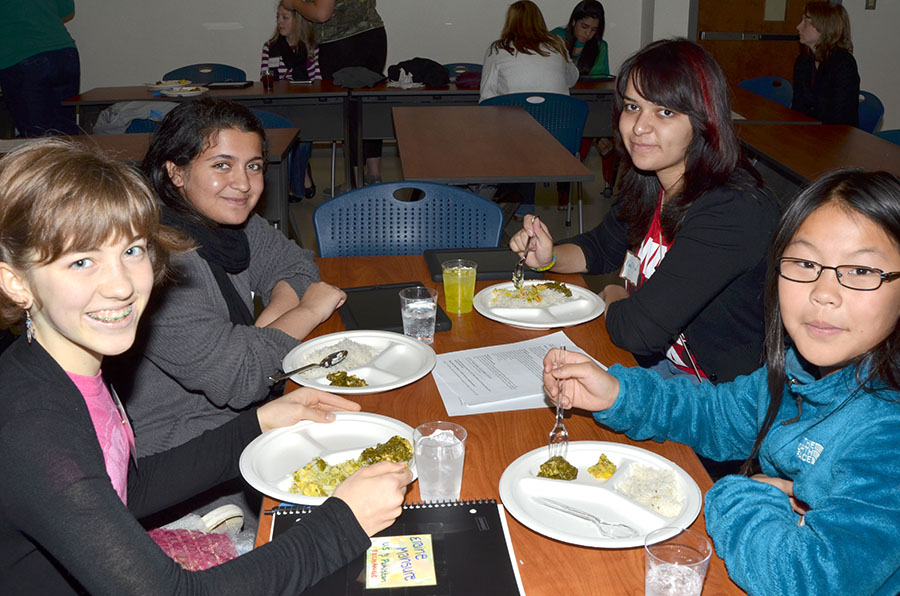
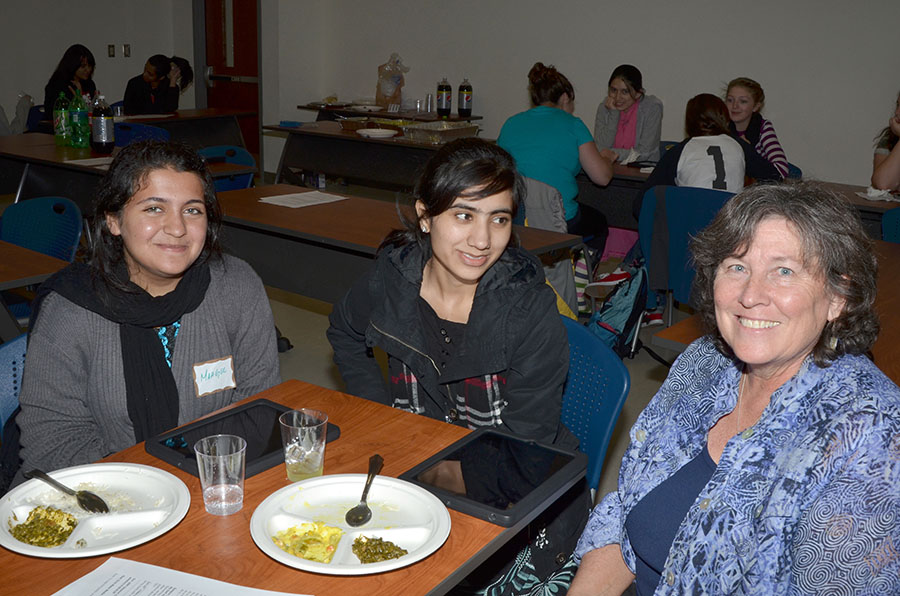
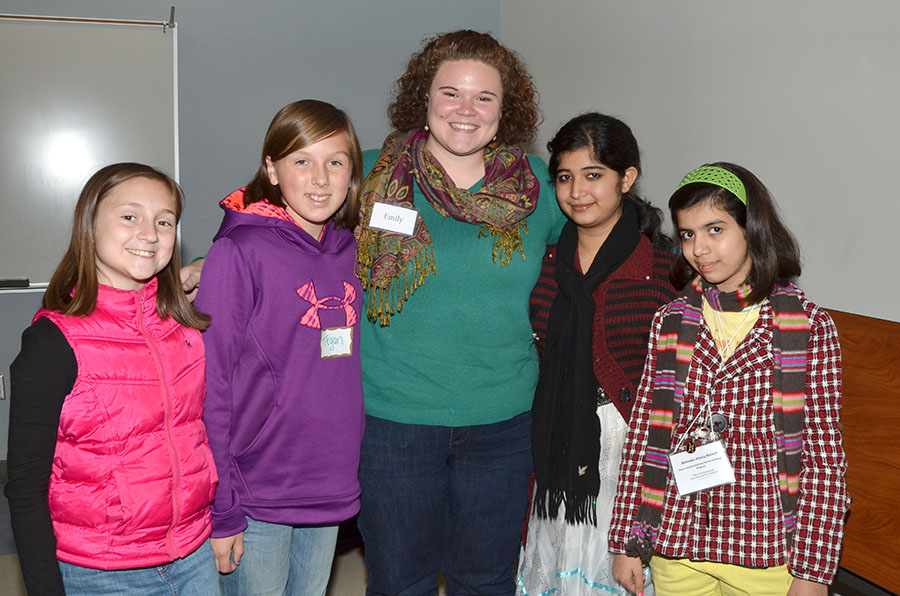
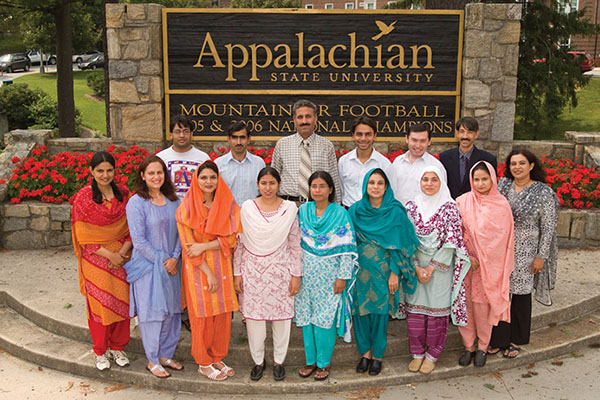





![How NCInnovation Is Rethinking Economic Development in North Carolina [faculty featured]](/_images/_posts/2026/02/rethinking-economic-development-600x400.jpg)






